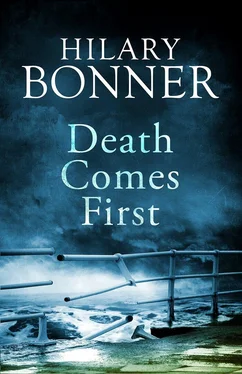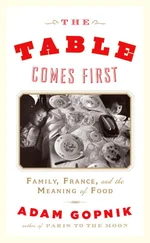Weeks turned into months. Charlie returned to work, though Henry insisted that he shorten his working day in order to continue helping Joyce with the baby.
Eventually Mark began to settle. By the time he was five months old he was sleeping through the night, and gurgling through the days. He tuned out to be a happy and contented child. A joy to have around.
Joyce found herself in love with motherhood. She gave up all thoughts of further education and abandoned the notion of putting her degree to any practical use in the field of employment. Instead her days were spent looking after her son, or meeting up with female friends at the tennis or golf club, or joining them for the occasional lunch or shopping trip. She could do so whenever she wished because her mother was always on hand and eager to babysit.
She had a husband who loved and cherished her, an extended family who were wonderfully supportive, and a home that was the envy of her friends. Charlie, with the assistance of his father-in-law, had given her a BMW 325i estate car as a thank you for their son. Still a performance vehicle, but with plenty of room for a baby and all the resulting paraphernalia, said Charlie. Joyce had help with everything, including housework. If she didn’t feel like cooking, the family’s daily, Josie, whom she now shared with her parents, would prepare the evening meal. Sometimes Charlie cooked. And whenever she wished he would take her out for dinner.
It was true that her marriage had not turned out the way she’d expected or hoped. It lacked the passion and excitement of her early days with Charlie; JC had made way for a couple who were considerate of one another but distant. While Joyce was now preoccupied with motherhood, Charlie was embroiled, physically and mentally, in a world he made no attempt to share with her.
As the years passed, that distance grew. Charlie’s business trips, with and without her father, became so frequent that Joyce wondered if he were having an affair. When she confronted him he would deny it, and, for a while, would be more like the man she had married again. Once she even plucked up the courage to ask Henry — who saw far more of her husband and seemed to be in his confidence in a way that Joyce was not — if there was another woman in Charlie’s life. He had told her not to be a silly girl, leaving her cursing herself for having asked. Henry’s stock response to matters of an emotional nature was to ignore them. Privileged and cosseted as she was, he expected her to know better than to delve into areas of her man’s life it would be far better not to know about.
Even more disturbing than the spectre of infidelity were her husband’s mood swings. He would sink into regular periods of depression, unable to sleep, unwilling to communicate, resisting all pleas to confide in her. He had turned into a man every bit as secretive as her father.
He did at least make an effort to hide his moods from the children, and she supported him in this. He would spend longer hours at the office, and his absences from home would increase during these periods. Sometimes, after the children had gone to bed, he would retreat to the garden shed, where, during the good times, and helped by Fred, he constructed model ships. It seemed to Joyce that he could not stand being within the same four walls as her. Once, when she woke in the wee small hours to find he was still out there in the shed, she had plucked up the courage to investigate. She found him smoking a joint; it was the first time she had seen him smoke marijuana since their student days. She had been surprised but not alarmed. If anything she’d hoped that the joint might help him attain the mellowness of the old Charlie, back in the days when they had smoked weed together. Trying to rekindle that old togetherness, she’d asked him to share the spliff with her, and he had done so, but only after protesting that she might find it too strong. The first couple of puffs had made her head swim, so much so that she’d had to hang on to Charlie as they walked back across the lawn to the house.
She’d had no idea whether Charlie was regularly smoking marijuana again, or if this was a one-off. Either way, it did nothing to mellow him.
Eventually she managed to persuade him to see the family doctor, Jim Grant. Grant was a GP of the old school; his solution to depression or mental problems was to write a prescription for Valium or Prozac and hope that would sort it out.
The cocktail of prescription drugs seemed to ease Charlie’s mood swings for a while, but it wasn’t long before he fell back into the same old pattern. That was how it remained throughout the rest of their marriage.
Concerned that the drugs were making matters worse, Joyce had broached the topic with Charlie.
‘How dare you suggest such a thing?’ he’d stormed at her. ‘Who the hell do you think you are?’
His anger had taken her by surprise. She’d thought he was going to hit her. Although he didn’t, she never dared mention his reliance on prescription drugs again.
Instead Joyce immersed herself in her children and in the gift-wrapped life she had never wanted. Charlie was not unkind or cruel. Or not deliberately so. As long as Joyce did not question or challenge him, he behaved reasonably most of the time. And he invariably made an effort when it came to special occasions. He saw to it that Christmas was always memorable for the children, and never forgot Joyce’s birthday or their wedding anniversary.
His love of boats and the sea remained, and he continued to sail throughout their married life, but, it seemed to Joyce, that was all that remained of the Charlie she had fallen in love with. At the time he disappeared from his latest boat — the pristine and plastic 28-foot sloop Molly May , named after their daughter — Charlie had been going through a particularly bad patch. Ironically Joyce had been glad when he’d told her he was planning a solo voyage. Time at sea calmed and restored Charlie in a way his wife could not. So she had encouraged him to go. And when she realized that he was not coming home, her genuine grief — because she did still love her troubled Charlie, in spite of everything — was intensified by her concerns over the way in which he had died.
Charlie was a capable and experienced sailor. He had set off on the fateful two-day voyage over the first weekend of November 2013, during an interlude of unseasonably good weather, saying it would be his last sail before winterizing the Molly May . It was believed that Charlie had fallen into the water whilst changing the rigging, and been swept out into the Atlantic. But Joyce found it hard to accept that he would have been foolhardy enough to sail alone without wearing a safety harness. Unless he had lost the desire to keep himself safe.
‘Do you think it’s possible Charlie might have taken his own life?’ she had asked her father.
Henry’s response had been predictable.
‘Don’t be ridiculous, darling,’ he had said. ‘Charlie had everything to live for. Why on earth would he do such a thing?’
‘You must have noticed that he suffered from depression.’
‘Joyce darling, I am sure Charlie would never have left you and the kids. Besides, people who commit suicide leave notes, don’t they?’
‘That’s a myth,’ she said. ‘I looked it up online. The majority of suicide cases leave no note.’
‘Oh, darling, don’t torture yourself,’ her father responded. ‘Your husband loved you and the children to bits. Yes, he used to get a bit down sometimes, but not enough to think life wasn’t worth living. And he would never have done anything to cause you and the kids such pain.’
Henry Tanner was at his most reassuring. But Joyce was sure she saw a flicker of doubt in his eyes.
Читать дальше












